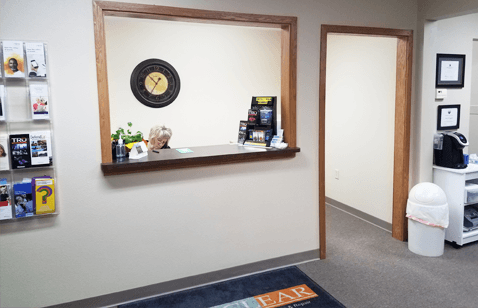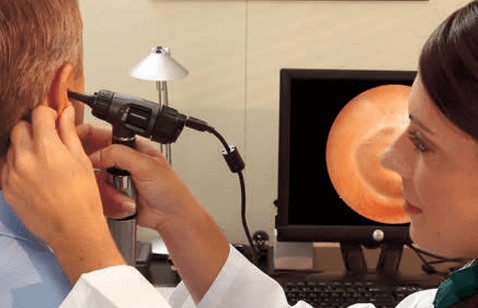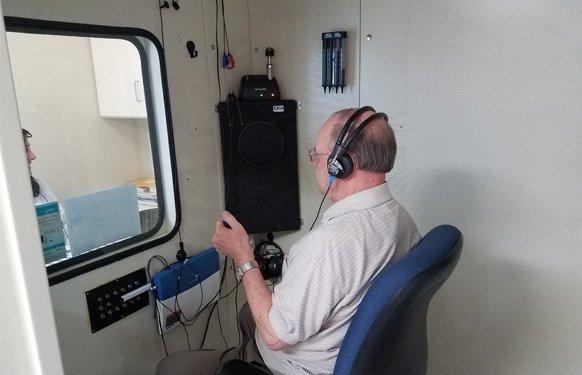Expectations for Your First Visit
Everclear Hearing Products would like all of our new and potential customers to know what they can expect with their first visit to our office. You'll always be greeted by our front-office staff and asked to fill out several forms, including your personal information, medical history, and a form verifying your insurance. You'll also be provided with a copy of a Notice of Privacy, as mandated by law.
Once you've filled out the paperwork and your exam begins, we'll review your personal information and ask questions designed to discover the types of environments where you experience difficulty hearing.

Audiology Testing
After this is completed our Doctor of Audiology / Specialist will use an otoscope — an instrument used to see the ear canal and ear drum to look for obstructing wax — or video otoscope to see inside your ear.
Then your first test will be conducted. This test is a pure tone hearing test, conducted in a soundproof booth. We'll place headphones over or inserts inside of your ears, which are connected to an audiometer. This audiometer will transmit a series of tones at various volumes into your ears to determine at which points, or thresholds, you can hear certain frequencies. When you do hear a sound, you'll be asked to press a button or raise your hand.

Speech Testing
Next, your provider will conduct speech tests with you. You'll be asked to listen to a series of one and two-syllable words at varying volumes, then asked to repeat them. These tests are used to determine the levels at which you can detect and understand speech.
Your audiologist may also choose to perform a speech in noise test to determine how well you're able to hear speech in a noisy environment.
The results of these tests, called an audiogram, will reflect your hearing loss in terms of both frequencies and decibels. We'll review this information with you and show you the type, pattern, and degree of hearing loss from which you are suffering, as well as the percentage of normal conversation you're able to hear.
Once testing is complete, we'll relate these results to your concerns about hearing loss, and use this information to recommend the next steps in your treatment.

